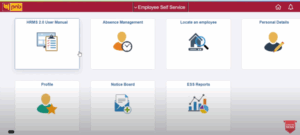6 Things Tax Preparers Can Do in the Off-Season

Whether you’ve run your tax preparation business for one year or ten, you know every tax season brings several months of intense and focused work. That’s why now is the time to set yourself up for next year’s seasonal tax preparation rush. Here are six things you can do during the slower months to ensure you’re ready for the next tax season.
1. Prepare for the next tax season
If you’re a seasonal tax preparer, you know how hard it is to organize your business in the middle of the tax season rush. Rather than waiting till December or January, why not start preparing for the new tax year early? Here are some things you can do now:
- Establish a system for organizing client files and associated tax documents, whether you use a digital storage system, paper filing, or a little of both.
- Make sure you have a secure filing system for client data and documents, like encrypted cloud platforms or purpose-built client portals to store, safeguard, and share your clients’ information, receipts, and tax documents.
- Renew your professional tax software before the next filing season starts, and ensure the software works with all the tools you’ll need, including printers, scanners, and your antivirus or firewall software.
- Renew your PTIN. All tax preparers must have a Preparer Tax Identification Number (PTIN) from the IRS in order to operate a paid tax preparation business. You’ll need to renew that PTIN every year. Typically, the IRS makes applications for PTIN renewal available in mid-October.
2. Grow your client base
The key to a successful tax preparation business is retaining and attracting customers. Take the time now to build your client base during the off-season.
Re-engage previous clients
Re-establishing relationships with clients from previous tax seasons is generally easier than prospecting for brand new clients. Plus, it helps you build a reliable client base you can depend on year after year. Reach out to pre-existing clients via email, offer them first dibs on appointments in the new tax year, or consider running special discounts for them as returning customers.
Prospect for new tax clients
Take advantage of the slow season to refresh your marketing efforts, and think about targeting new and younger audiences, including college students and gig workers. There are a lot of ways to market for a tax preparation business, including direct marketing to current and prospective clients through email, optimizing your website so it ranks higher in search engines, and staying engaged on social media through a channel like LinkedIn or Facebook.
3. Attend IRS tax forums for industry education
Don’t forget your own continuing education. The off-season is a great time to get up to speed on new IRS regulations, tax credits and deductions, and timely topics like cybersecurity and tax scams. The Nationwide Tax Forum is the IRS’ largest annual education outreach event. In addition to providing you invaluable guidance on everything from industry best practices to case resolution, forum attendance can also earn you up to 19 continuing education credits.
4. Consider adding tax advisory services to your business
The first quarter of the year will typically be when your tax preparation business brings in the most revenue, but you can expand your services and increase income throughout the year by providing tax advisory services to your clients. Small business owners and sole proprietors as well as high-income earners who typically take a lot of tax deductions can benefit from year-round advice on how to reduce their tax liability. You can provide guidance to clients on everything from tax-sheltered estate planning to depreciation strategies for small business assets.
5. Work with businesses that need year-round tax support
Adding some tax advisory services to your offerings is a great way to build relationships with businesses that require tax support year-round. Small businesses, for example, typically need tax help through the year. Many are quarterly filers that may also need to pay Social Security and Medicare taxes for employees on a monthly or quarterly basis. You may have existing clients who could benefit from outsourcing payroll or bookkeeping services to you as well.
6. Rest and recharge from a busy tax season
Working around the clock isn’t uncommon for tax preparers from late fall into spring. That’s why self-care is critical. Once you’ve crossed the finish line on those spring filing deadlines, make sure to plan for rest and relaxation during the slower seasons. Remember: the more you can do now to recharge and organize, the more energized and prepared you’ll feel for the next filing season, so you can devote your energy to your clients when they need you most.

Pranab Bhandari is an Editor of the Financial Blog “Financebuzz”. Apart from writing informative financial articles for his blog, he is a regular contributor to many national and international publications namely Tweak Your Biz, Growth Rocks ETC.






